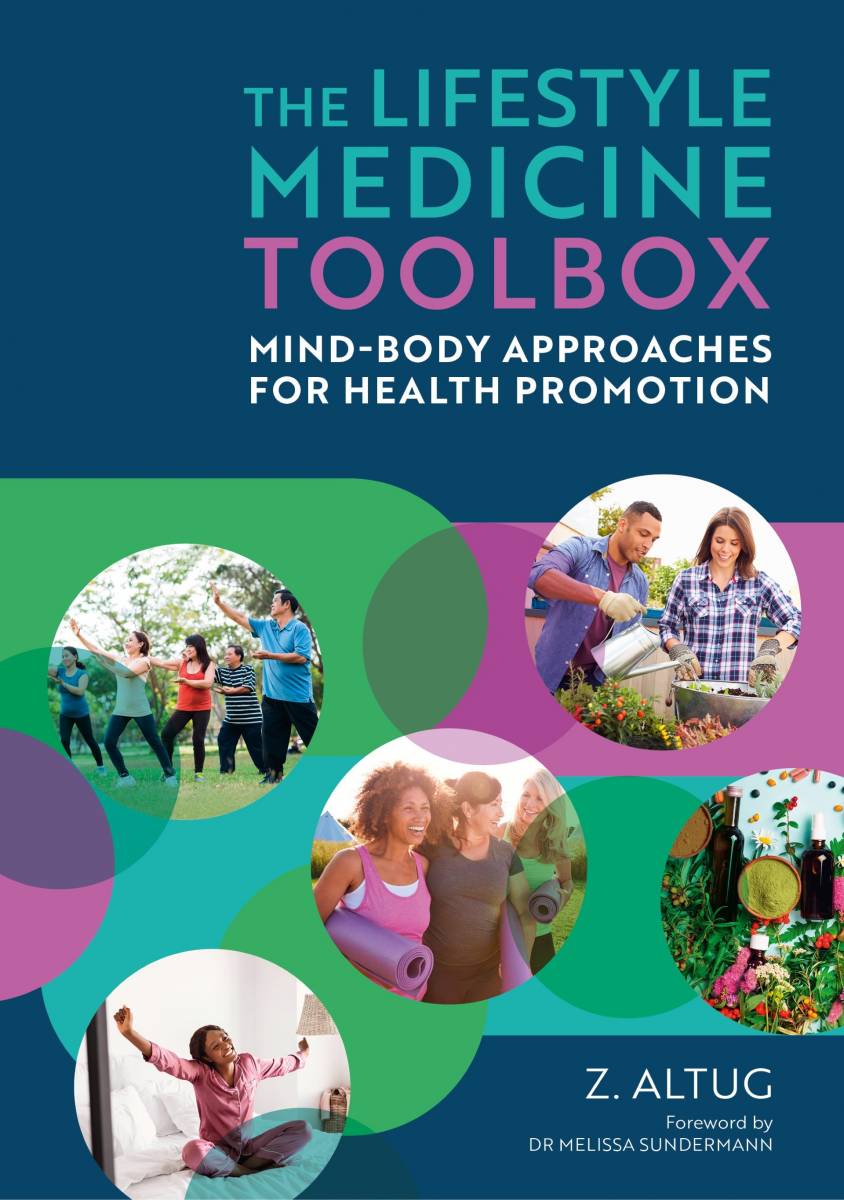Physio Nick Worth reviews The Lifestyle Medicine Toolbox: Mind-body approaches for health promotion
The Lifestyle Medicine Toolbox: Mind-body approaches for health promotion
Author: Z Altug
Publisher: Jessica Kingsley Publishers
ISBN: 9781839979088
Price: £32.99
PhysioUpdate readers can obtain a 15% discount when ordering a copy of this book by logging on to the publisher's website and entering the code TLMTPU15 at the checkout stage (the discount cannot be used in conjunction with any other offer). The offer runs from 28 March to 30 April 2024.
Ziya Altug, an experienced Los Angeles-based physical therapist, has written a ‘dip in and out of’ type of book. His primary aim is to give health, wellness and fitness professionals inspiration and links to resources when supporting their clients.
The opening two chapters set the scene for lifestyle medicine and how it integrates with clinical concepts and ideas. This covers areas where evidence-based medicine meets self-management or preventive treatment options. The book tries to encompass a holistic approach where the patient is educated to follow simple principles or activities that will hopefully boost their wellbeing – both mental and physical.
While I felt the text caters primarily for a north American audience, there is plenty of useful information for every reader. Most chapters are full of simple one-line sentences that introduce a concept or link. I found myself searching for UK-based references or links several times, but they didn’t appear very frequently. The book is very well referenced with numerous sources of information and activities to complete. The author has certainly worked hard to support his ideas with scientific evidence.
Interesting ideas
I felt that many of the concepts discussed in the text were fairly basic. Though the somewhat simplistic view that ‘diet has a direct effect on health’ or ‘exercising more has positive benefits’ could seem a little condescending, the sheer volume of interesting ideas kept me reading. As a clinician, it’s easy to fall into well-trodden pathways for lifestyle management strategies. This book continually makes you consider alternative options – some simple, some that you may not have considered.
Readers are given many clinical tips and patient information leaflets that are designed to be copied and given to clients. There is a variety of suggested exercise plans and photographs to view.
Mindfulness concepts are employed frequently, and we learn about relaxation techniques as well as tai chi and yoga. Complete routines that the client can follow are simple and well referenced.
While Mr Altug often references the work of other authors, some novel principles are introduced. For example, the acronym FITTER is used to modify exercise prescription. This stands for Frequency, Intensity, Time, Type of exercise, Enjoyable and Realistic/sustainable: simple methods to make exercises functional and improve compliance.
The importance of social connectedness
Mr Altug discusses how social connectedness is important for mental wellbeing, something that struck me as being similar to what we in the UK call social prescribing. The utilisation of social groups to support non-medical approaches to boost mental or physical health is not new but is playing a major role in NHS care options.
There are also suggested playlists for a variety of moods such as relaxation music – although I do wonder whether this would be helpful, given the diversity in people’s music tastes.
Lifestyle medicine is based around six factors: nutrition, exercise, sleep hygiene, stress management, risky substance use and social connectedness. A section on the use of risky substances covers alcohol, smoking and other substances in a non-judgemental way but also encompasses non-pharmacological and non-surgical ideals. While many of the theories described are relatively simple, some seem a little ‘optimistic’. I am not sure, fro example, how many clients would be able to erect a gazebo for wellness and fitness in their gardens.
'Helpful and straightforward'
Overall, this is a helpful and very straightforward book that contains lots of ideas and tips that can be employed to improve clients’ mental and physical health. The activities and self-care handouts can be followed by anyone. The description of the book as a toolbox is very appropriate.
I feel that there are useful resources that any clinician can benefit from – even if the cheesy smiles in most of the photographs became a little wearing by the end.
Nick Worth is a physiotherapist who runs a private practice. He is the chair of the Society of Musculoskeletal Medicine (SOMM). For more information about SOMM, click
X (Twitter): @Nickworthphysio
To read Nick's review of Pain: The ultimate mentor, click
To read Nick's review of The Psychology of Perfectionism in Sport, Dance and Exercise, click
Author: Reviewer: Nick Worth














